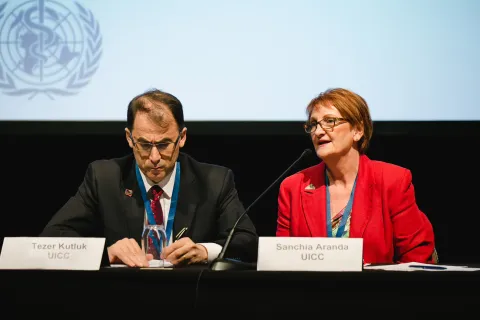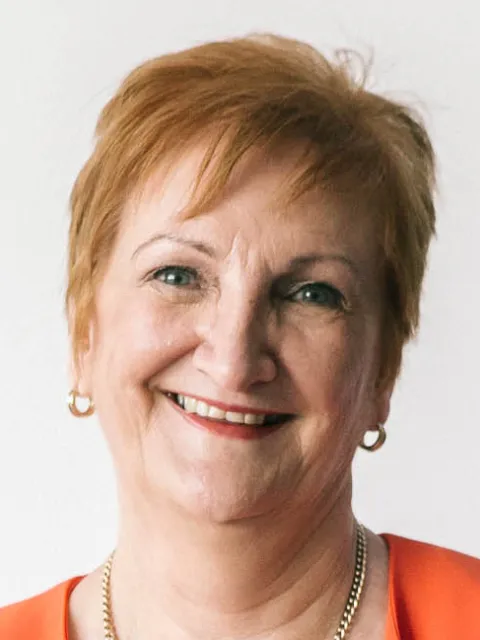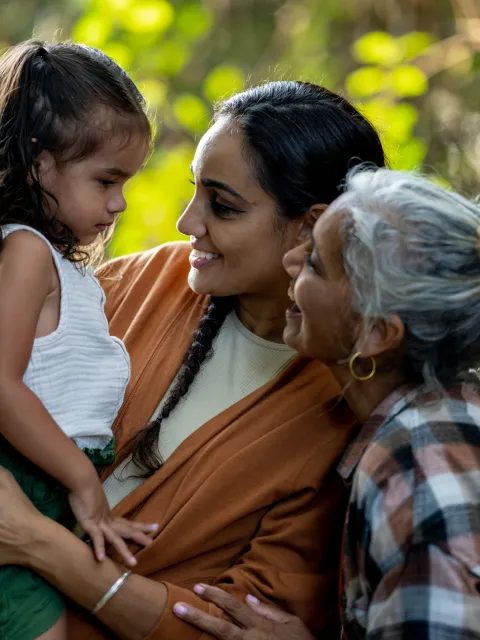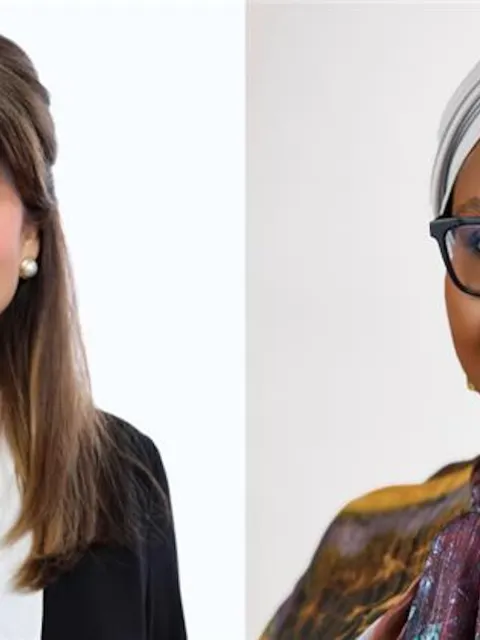Always looking for a bigger impact: my career journey in cancer care

A fortuitous start
I did not set out to work in cancer care. Following my nursing education in New Zealand, I moved to Australia with the intention to work in a specialised centre for the treatment of burns. A lack of medical practice meant I was sent to a medical unit to acquire hands-on experience in general patient care.
As it happens, this particular unit included an oncology section, which focused on the administration of chemotherapy treatments. This was 1979, cancer treatment at the time focused mainly on surgery and radiotherapy. Those were the early days of chemotherapy in Australia and I suddenly found myself at the centre of the latest advancements in medical oncology and haematology.
We predominantly treated cases of leukaemia and lymphoma and an increasing group of solid tumour patients. It was an intense and enriching experience. I thoroughly enjoyed the long-term interactions with patients, the deep bonds of care and comfort. I knew then that cancer control was going to be the focus of my career. I also knew that I wanted to be able to do more, which led me to enrol at the Royal Marsden in London to take a specialised cancer nursing course.
An inspiring mentor
I was not alone. In the ‘70s and ‘80s many nurses travelled to the Royal Marsden to undertake cancer nursing courses. The specialty of cancer nursing as we know it today was starting to emerge during those days. The late Robert Tiffany, an oncology nurse and founder of the International Society of Nurses in Cancer Care (ISNCC), was the Director of Nursing at the Marsden at the time, advocating for the formalisation of cancer nursing as a specialised field in nursing.
I was very fortunate to meet Robert, whom I consider to be one of my mentors. Robert was somebody who constantly worked to change things for the better.
I believe that is also a trait that has characterised my career: always looking for new platforms where I could have a bigger impact.
I left my work in the ward to pursue specialised education because I wanted to make a difference beyond the individual patient in front of me. I then moved into research to help develop the evidence-base and scientific knowledge that could support nurses’ ability to make a difference to patient outcomes. Robert inspired me to take my first steps in the global cancer control arena. It was thanks to him that I went to my first international conferences on cancer, including my first UICC meeting, the World Cancer Congress in 1986 in Budapest. This started my interest in global cancer issues and ultimately led to board governance roles at ISNCC and more recently with UICC.
Stepping up as CEO
Back in Australia, I was employed in a government agency as Director of Cancer Services and Information following 30 years of moving between hospital and university sectors. I loved this work as it focused on trying to make system level improvements. However, I was frustrated by the constraints of working in government, particularly not being able to speak out against policies negatively impacting on patients. The opportunity to take up the position of CEO for Cancer Council Australia (CCA) came as a welcome change. The potential in the role at CCA was obvious to me: this was an organisation working across every area of every cancer, independent from government, but affiliated with key public entities, and capable of influencing policy decisions as well as the public without being restricted by red tape.
It wasn’t all roses from the start though. CCA was and remains a complex organisation - a federation of eight state Cancer Councils. When I joined as CEO over a decade ago, the different bodies making up CCA shared a name and a brand, but with few examples of true collaborative functioning. The national institution was often perceived to be in competition to the state entities.
A big part of my role at the start was to support creation of a common vision and a governing framework that would uphold that vision.
Together we developed an overall purpose statement, a federation charter, common values, and a clear decision making process. We improved our governance and oversight and had frank discussions about what was valuable to do at the state level and what was better handled nationally.

Prof. Sanchia Aranda speaking during the 2017 World Cancer Leaders' Summit
The art of influencing for change
As a consequence of that change-process, CCA had to stop doing certain things and let some people go. These are, without doubt, some of the most difficult conversations a CEO can have. A CEO must, however, be able to rise above individualities and concentrate on the organisation they have been entrusted with.
In my observation, the best CEOs bring together a combination of leadership and management skills. They have to be able to set a direction for the organisation and equally importantly, must be able to bring together and manage the people in that organisation to best deliver its direction and purpose.
Too often, CEOs surround themselves with people who won’t threaten them. What they actually need are people who want their job. As a CEO, you are only as good as the people you employ and develop.
Seeing local issues through a global lens
My experience with setting up strong governance structures at CCA served me well for my role as President of UICC. I hope that, as my tenure comes to an end this October at the World Cancer Congress in Kuala Lumpur, the work we have done with the board of directors and Cary Adams in creating an organisation truly capable of delivering its agenda is now visible for all to see. As UICC invites nominations for its Board of Directors 2018-2020, I would encourage all those with relevant experience wishing to drive positive change in global cancer control to consider stepping forward.
In equal measure, my experience in global cancer control very much informs my role as CEO. The privileged opportunity I have had to be exposed to different perspectives was invaluable to inform and expand my own ideas as a CEO. I don’t think CCA’s strategy would have such a strong focus on equity if it wasn’t for the discussions on inequities in access to cancer services across the world. My international engagement provides me with a global lens that enables me to look at my own country’s context with more clarity. Many believe that a high-income country like Australia doesn’t have an equity problem but in fact it does have a huge one. Gaps within countries in many ways mirror those between them and thanks to my international work I was able to see the links.
Being exposed to diverse viewpoints is something every CEO would benefit from. There is no other position in an organisation that has to take account of the whole and only other CEOs understand challenges attached to the role.
Accessing opportunities to hear different perspectives and share common challenges with peers would make every CEO more capable of looking after their organisation. I would highly encourage all CEOs to make sure they take the time to get out of their own space and be exposed to different ideas and broader perspectives. The UICC CEO Programme at the World Cancer Congress, which aims to build a mutually supportive community of peers, offers one such opportunity and I hope to see many of my CEO peers from across the membership there.
Last update
Friday 27 March 2020Share this page


